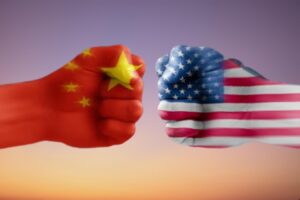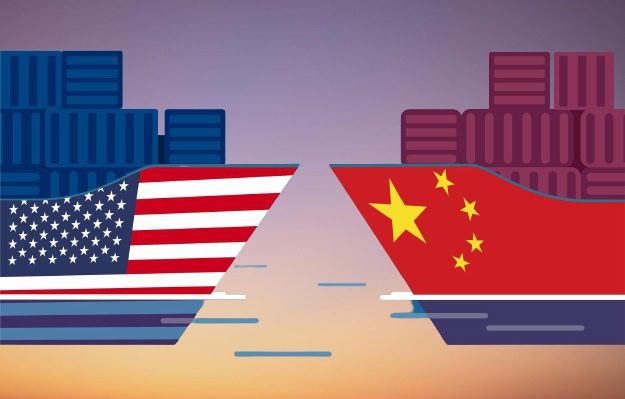Unleashing Technological Trade Wars: China’s commerce ministry recently announced the imposition of export restrictions on two metals crucial to semiconductor manufacturing. This move further intensified the technological trade war between China, Europe, and the United States. The restrictions, motivated by national security concerns, will require exporters to obtain permission to export gallium and germanium compounds starting from August 1.
The Significance of Gallium and Germanium Compounds
Gallium and germanium compounds play a vital role in the production of semiconductors. China, being the largest global source of these metals, as indicated by a European Union study on critical raw materials, holds strategic leverage in the semiconductor industry.
Global Battle for Technological Supremacy
The competition for technological dominance is escalating on a global scale, with countries vying to lead in key areas. China’s export restrictions highlight its determination to assert dominance in the semiconductor sector, which has significant implications for its domestic technology industries U.S. Measures to Cut Off Exports to China to curtail China’s technological ambitions, the United States introduced comprehensive rules aimed at restricting the export of essential chips and semiconductor tools. These Global Battle for Technological Supremacy measures have the potential to severely impact China’s domestic technology industry. Additionally, the U.S. has been actively urging chipmaking nations and allies, such as the Netherlands and Japan, to enforce export restrictions of their own.
Export Restrictions of Technological Trade Wars
In response to the U.S. call for export restrictions, the Netherlands recently introduced new limitations on the export of advanced semiconductor equipment.


Also Read: U.S. Ambassador Advocates for Freedom
Although these restrictions do not specifically target ASML, one of the world’s most important Export Restrictions semiconductor companies, they effectively prevent ASML from exporting to China. This Export Restrictions of Technological Trade Wars move exemplifies countries’ efforts to safeguard their own supply chains and bolster their domestic chip industries.
Japan’s Acquisition Proposal for Semiconductor Materials Giant
In a bid to strengthen its domestic chip industry and secure its supply chain, a Japanese government-backed fund proposed a significant acquisition of JSR, a semiconductor materials giant. This move by Japan aligns with its focus on leveraging its traditional strengths in specific areas to advance its chip industry.
Semiconductor Role in Technology and Beyond
Semiconductors are pivotal components in a wide range of technological products. They are integral to the functioning of smartphones, cars, refrigerators, and have Semiconductors’ Role in Technology and Beyond critical Semiconductor Role in Technology and Beyond applications in military technologies and the advancement of artificial intelligence.
Conclusion of Unleashing Technological Trade Wars
The escalating trade conflict in the semiconductor industry between China, Europe, and the United States has far-reaching consequences. The restrictions imposed by China on the export of key chipmaking metals, coupled with the measures undertaken by the U.S. and other countries, disrupt global supply chains and pose challenges for the advancement of technology. The Conclusion of Unleashing Technological Trade Wars battle for technological supremacy continues to shape the future of the semiconductor industry and its implications on a global scale.
Our Reader’s Queries
What are some real life examples of trade wars?
Japan-Korea conflicts in the 20th century (1876-1945), Banana Wars (1898-1934), the Smoot-Hawley Tariff Act (1930) which enforced protective trade measures in the United States, the Anglo-Irish trade war (1932-1938), and the Chicken War (1960s) between the U.S. and the European Economic Community.
How is the trade war between US and China affecting Apple?
This week, Apple’s capitalization dropped by $200 billion due to the ongoing trade war between the US and China. In response to US trade sanctions and import restrictions, China has banned government officials and employees from using Apple products.
What is the concept of trade war?
When one country fights back against another by increasing import taxes or placing limits on the goods they can bring in, a trade war breaks out. A tariff is a tax or fee that a country imposes on goods coming from elsewhere.
What is a trade war between US and China?
Since January 2018, the US and China have been locked in an economic showdown. President Trump slapped China with tariffs and trade barriers to push for changes in unfair trade practices and intellectual property theft. This tug-of-war has stirred up tension and uncertainty in the global economy.

